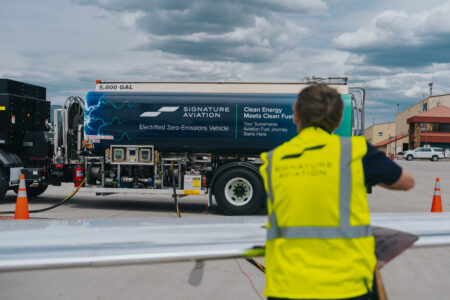The 2016 Annual FBO Fuel Sales Survey has revealed that 54% of US FBOs increased their fuel sales in 2015 compared with the previous year, with 23% reporting a 1-4% increase, 15% seeing a 5-8% rise and 16% reporting an increase of 8% or more.
According to the Aviation Business Strategies Group (ABSG), which conducts the survey, the increase in fuel sales in 2015 builds on increases in the two previous years. For 2014, 49% of responding FBOs reported a year-over-year increase in fuel sales, while 43% of FBOs in 2013 reported greater fuel sales compared with 2012.
“This is the first time since we started the survey that more than 50% of the respondents experienced an increase in fuel sales over the previous year,” ABSG principal John Enticknap said.
Although a majority of FBOs reported increased sales, 28% of FBOs responding to the survey experienced a decrease in fuel sales in 2015 while the other 18% of FBOs said fuel sales were flat.
“This is still a fractured marketplace that is showing some positive signs of recovery,” Enticknap added.
The survey also included a forecast for 2016, which showed that most FBOs (58%) expected fuel sales to increase compared to 2015, although no respondents expected increases of more that 8%. Of those who responded, 18% expect a 5-8% increase and 40% predict rises of 1-4%.
“Looking ahead, more than 90% of surveyed respondents said they expect to have the same or increased fuel sales this year compared to their 2015 results,” said Ron Jackson, ABSG principal. “If this forecast holds up, 2016 could prove to be a watershed year for the industry.”
When asked about their expectations for the economy in general, 41% of the responding FBOs said the economy is not heading in the right direction, and 27% have a positive outlook about the economy. The rest (32%) were undecided.
In response to questions about fuel purchases by transient customers, almost half of the respondents indicated that up to 40% of aircraft customers coming onto the ramp do not buy fuel.
“With the current US FBO business model relying on fuel sales to fund their operation, this is an alarming development,” Enticknap said. He attributed this phenomenon of aircraft stopping on an FBO’s ramp without a fuel purchase to two factors: more flight departments are choosing to tanker fuel to their destinations and back to their bases; and more jets are more fuel efficient.




